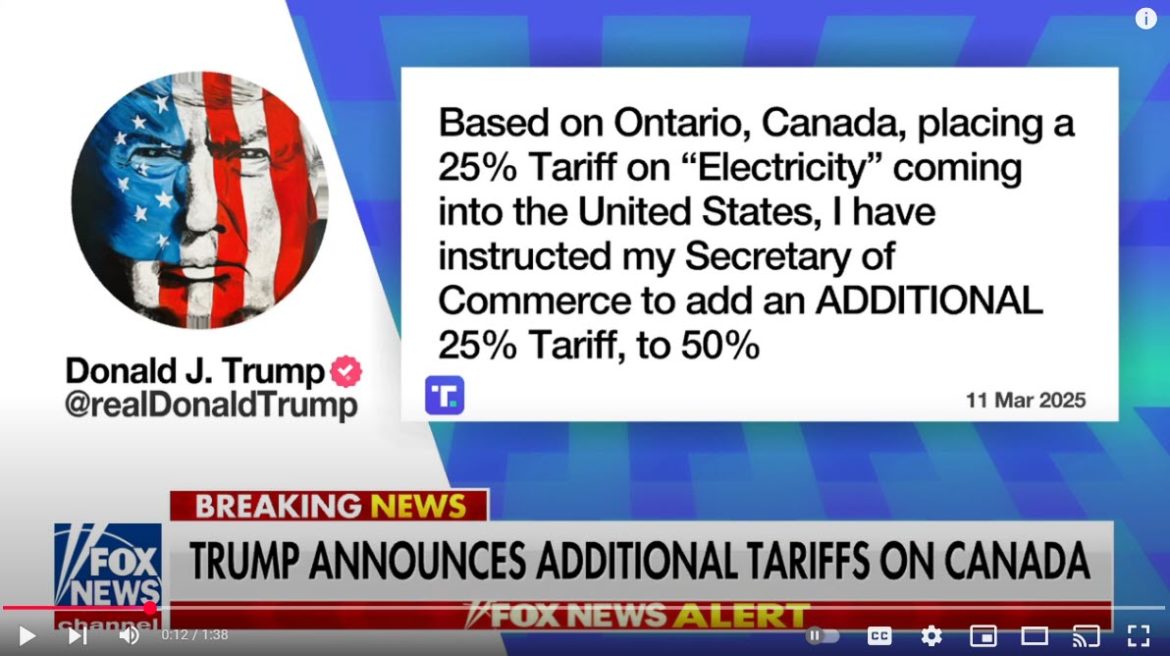President Donald Trump has announced that a new tariff on Canadian steel and aluminum will take effect tomorrow, raising the duty to 50%. Trump made the declaration on Truth Social, citing Ontario Premier Doug Ford’s recent decision to impose a 25% surcharge on electricity exports to the United States. The ongoing economic dispute between the two nations has quickly escalated, with Ford warning that Ontario could completely cut off power exports if the U.S. takes further trade actions.
Trump’s move comes amid increasing tensions over trade policies between the two neighboring countries. He asserts that the tariff hike is necessary to counter what he describes as unfair economic pressures from Canada. In response to Ford’s threat of cutting electricity exports, Trump has stated he will declare a national emergency in the affected regions, allowing the federal government to take swift action to maintain energy supplies.
Ford has reacted strongly to Trump’s announcement, urging him to reconsider and engage in direct negotiations with Canada. He has emphasized that these tariffs will not only harm Canadian manufacturers but will also negatively impact American industries that rely on Canadian steel and aluminum. The Ontario Premier has accused Trump of acting recklessly, stating that such measures will only deepen economic uncertainties at a time when both nations should be cooperating on trade and energy security.
This latest trade battle echoes past conflicts during Trump’s presidency when he first imposed tariffs on Canadian steel and aluminum under the justification of national security concerns. Those tariffs were met with retaliatory measures from Canada, straining relations between the two allies. The newly announced increase reignites those tensions, with potential consequences for industries on both sides of the border.
The United States and Canada have long maintained a complex trade relationship, with mutual dependencies in sectors ranging from energy to manufacturing. Canada is one of the largest suppliers of electricity to the U.S., particularly to states like New York and Michigan. Ford’s warning of a potential power cut raises concerns about disruptions to American businesses and consumers who depend on Canadian energy exports.
The economic standoff is also drawing reactions from U.S. lawmakers and business leaders. Some Republican and Democratic officials are urging Trump to find a diplomatic solution, warning that a prolonged trade dispute could lead to job losses and price increases for American companies that rely on Canadian raw materials. Meanwhile, Canadian trade officials are weighing possible countermeasures, including increased tariffs on U.S. imports.
With the new tariffs set to take effect within hours, industry leaders and policymakers are closely watching for any last-minute negotiations. Whether Trump’s national emergency declaration will alter the course of events remains to be seen, but the escalation of trade tensions marks a significant shift in U.S.-Canada economic relations. As both nations brace for potential economic consequences, the world is watching to see how this trade dispute unfolds.



